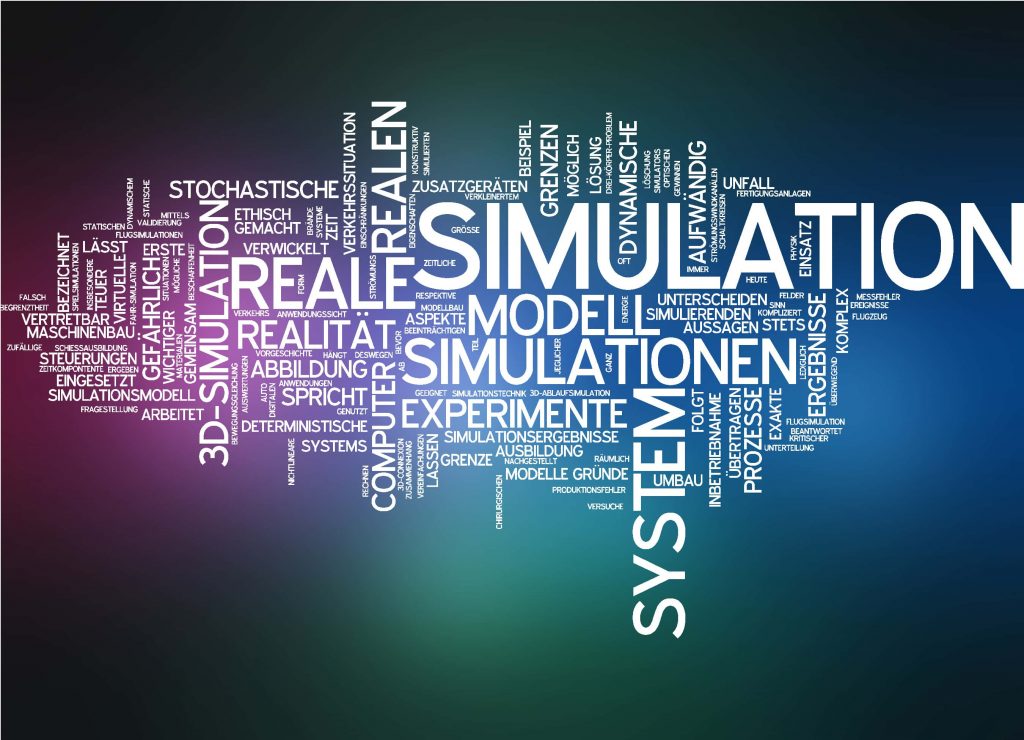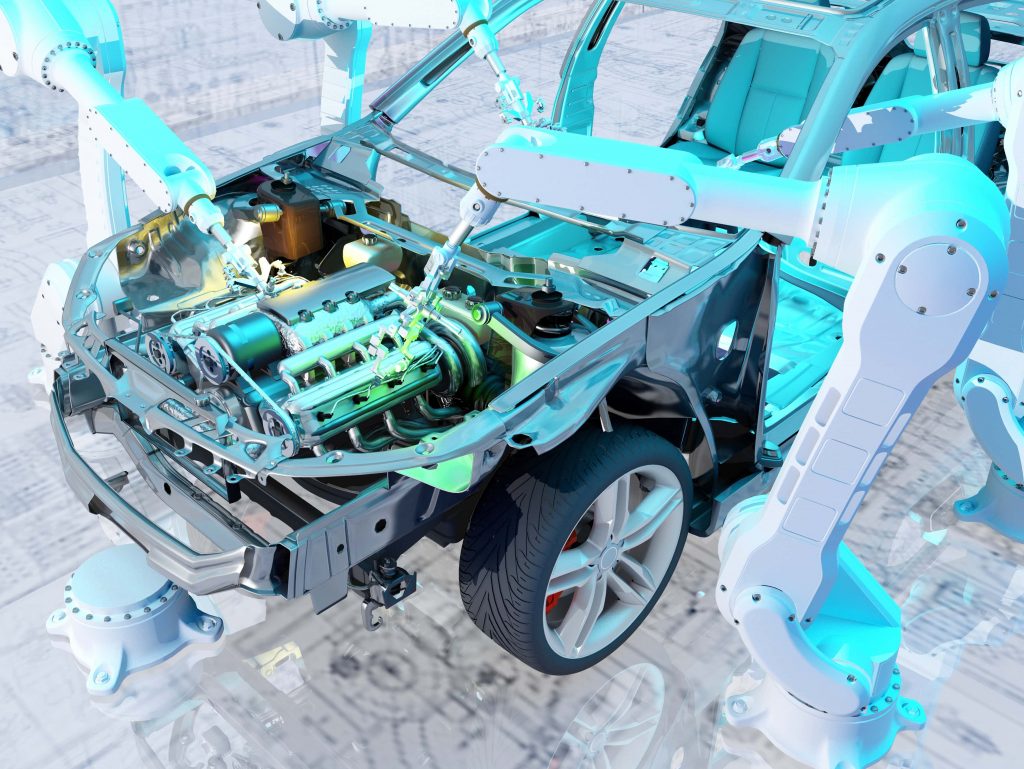Simulation as a widely used method of digital planning and optimization is the model-based analysis and interpretation of experiments. In the application for production systems. It offers enormous potential in the design and improvement of your company. After determining your simulation goals, our core tasks during the simulation project are the modeling and validation, the execution and the interpretation of the results, as well as the model adaptation and measure initiation.
Discrete event simulation (DES) can be used to describe and analyze numerous issues in production and logistics, such as dimensioning equipment, line design, buffer design, positioning and control methods. Scenarios and alternatives can be tested and evaluated on the basis of simulation experiments. Appropriate tools such as Plant Simulation are used to purposefully create digital models which, in addition to the improved design, also enable process-accompanying optimization of the systems.


The depiction and validation of manual and semi-manual processes in assembly is a special discipline of the IPS Engineers. The division of labor between human and machine, for example in the application field of lightweight robotics, or the question of automation potential in complicated processes are just a few of the questions in which we support the customer. We provide suitable tools, such as the editor of human work (ema) or Process Simulate, for deploying and applying.
In the field of continuous process improvement, the application possibilities of the simulation are manifold. Applications such as the virtual twin of production offer the possibility of process-accompanying simulation, which enables direct intervention in the process in closed-loop applications, for example in the case of bottleneck identification, controlling and forecasting. The joint development process of a simulation model with the customer also offers numerous opportunities to incorporate improvements in the design of planning alternatives.


